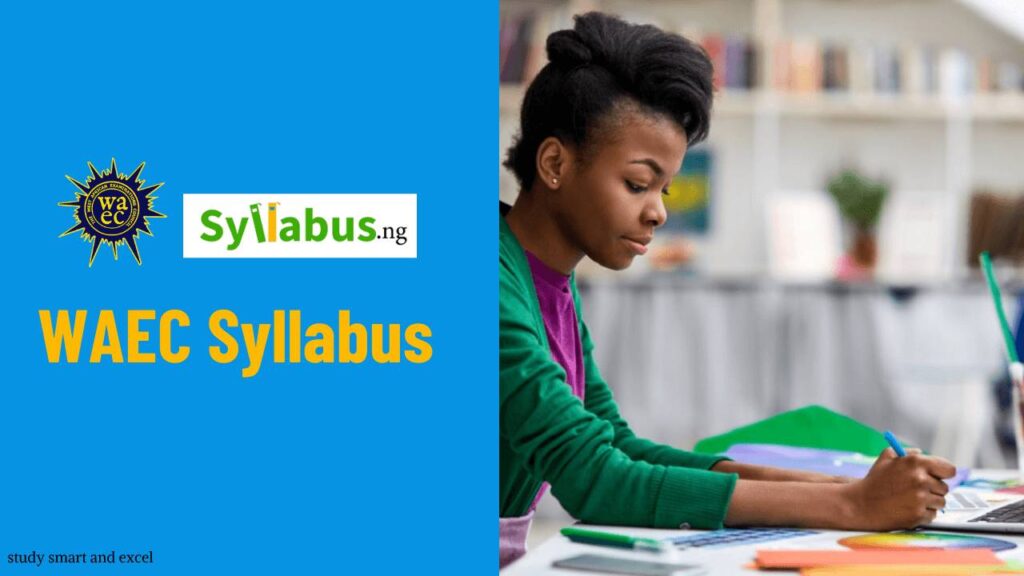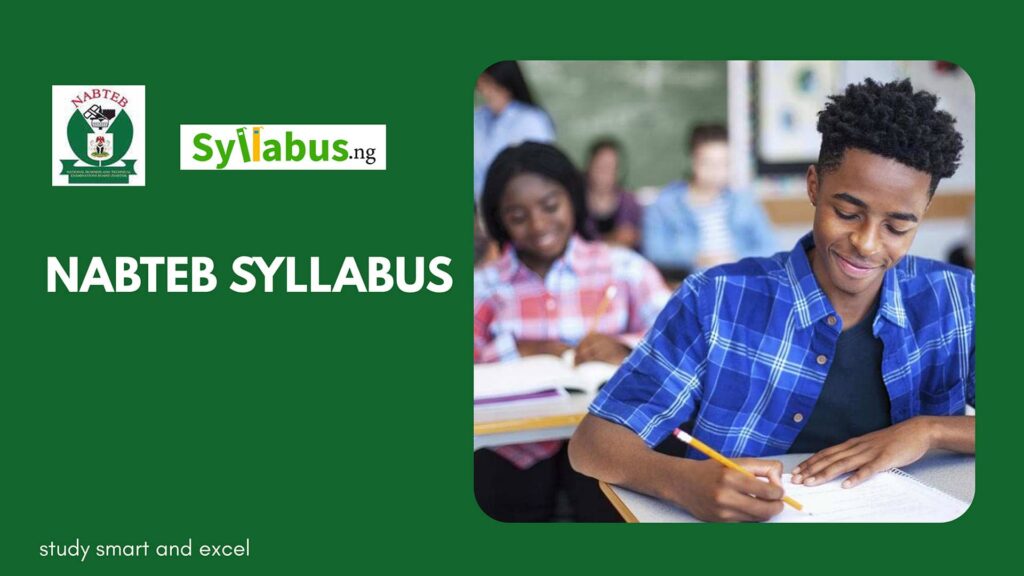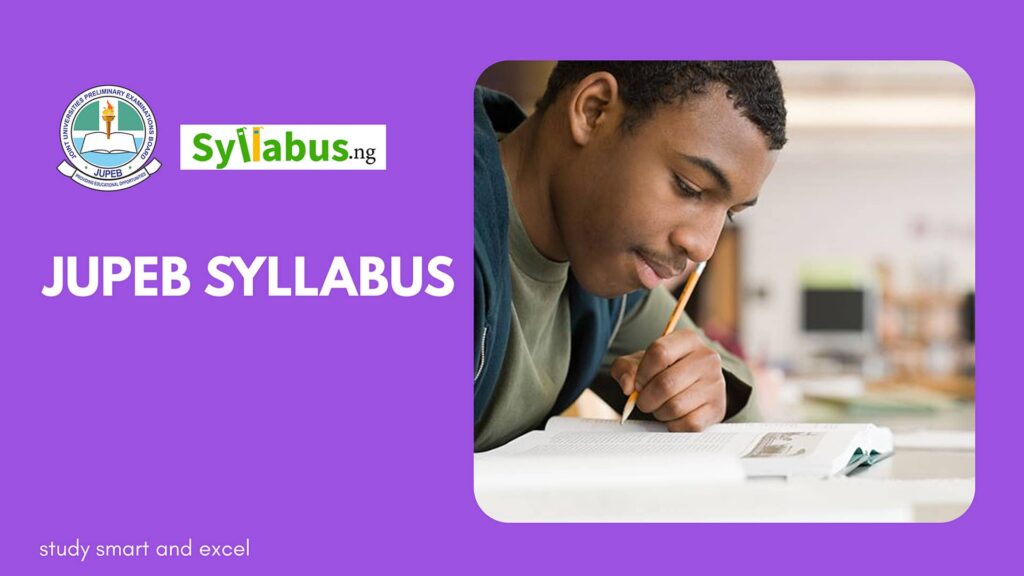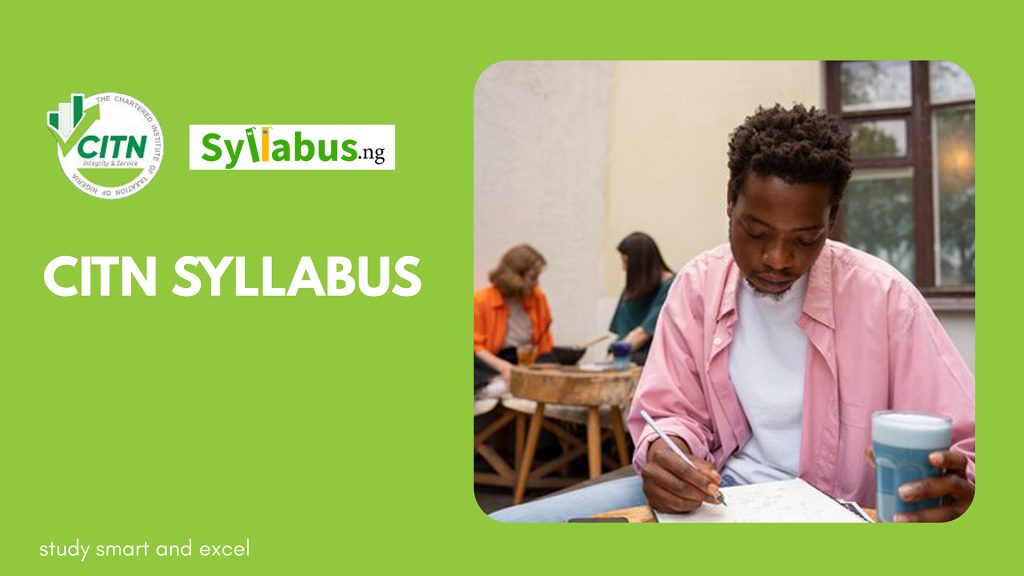NECO Islamic Religious Studies (IRS) Syllabus
Are you writing Islamic Studies in your NECO O’level exams? Download the recommended Islamic Studies syllabus to excel in your exams.

Home » NECO Syllabus » NECO Islamic Studies SyllabusAbout NECO Islamic Studies Syllabus
If you’ve found this page, it’s obvious you are looking for the NECO Islamic Studies syllabus, worry no more because we have crafted this syllabus to guide you through the tedious journey of your exam preparation. This syllabus is designed to help you understand how Islamic teachings and practices have shaped society over the centuries.
By following this syllabus, you will be introduced to key areas that cover both the past and present. You’ll look at the significant historical moments and figures that have influenced Islam, while also examining the spiritual, moral, socio-economic, and intellectual roles that Islam plays in today’s world.
This syllabus is designed to give you a comprehensive understanding of Islamic Studies. Keep in mind that if you’re interested in other religious studies like Christian Religious Studies or West African Traditional Religion, you’ll need to choose between them, as they’re not taken alongside Islamic Studies in the NECO exam.
Marking Guide & Sections
Here is a guide on how the papers are structured and what you can expect when it comes to marking. Let’s break it down:
Paper 1
This is your multiple-choice section. You’ll have 50 questions to answer, with one mark for each question. You will be given 50 minutes to complete it, so that’s about a minute per question. The goal of this section is to test your understanding of various topics in Islamic Studies. So, make sure you’re ready for questions on history, Qur’an, Hadith, and other key areas.
Paper 2
This is your essay section. It consists of six questions, but only one is compulsory. You have to answer the compulsory question and then choose three out of the five optional ones. You’ve got two hours to write your responses, so plan your time wisely. This section is worth 100 marks, so it’s where you can show what you know to earn more marks.
Download NECO Islamic Religious Studies Syllabus
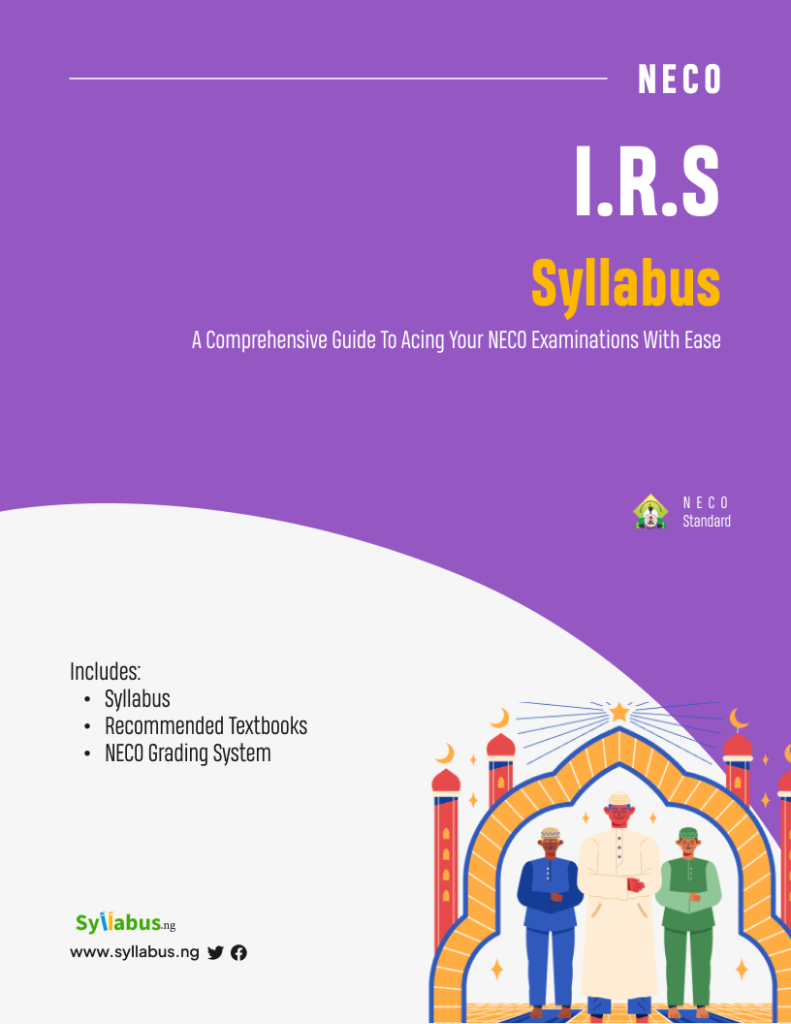
Best candidates excel because they study smart and hard. Know what’s expected of you.
Download the NECO recommended Islamic Religious Studies syllabus.
The NECO Islamic Studies Syllabus
| ISLAMIC STUDIES | ||
| SN | TOPICS | OBJECTIVES |
| PART 1 TARIKH (HISTORICAL DEVELOPMENT OF ISLAM) | ||
| 1 | The Jahiliyyah:Arabia before Islam. | -Description of Arabia – Location -Social Life – Marriage, divorce and inheritance. -Religious life – Idol worship and names of major gods / idols. -Political Life System of Government -Economic Life – Sources of livelihood -The Reforms introduced by Islam on the Jahiliyyah practices. |
| 2 | The life of Prophet Muhammad (S.A.W.) | (i) Birth (ii) Marriage (iii) Call to prophethood and his mission (iv) Hijrah: Causes, Course and Significance (v) Formation of the Ummah and the Madinan Constitution (vi) Leadership qualities of the Prophet (vii) The Battles: Badr, Uhud and Khandaq. (causes, courses and effects.) (viii) The Treaty of Hudaybiyyah: terms and outcomes. (ix) Conquest of Makkah. (x) The Farewell Pilgrimage: description, sermon and its lessons. (xi) Death. |
| 3 | The Khulafᾱ’ur-Rᾱshidīn(The Rightly – guided Caliphs): Abu- Bakr Ibn Abī Quhhᾱfah, ‘Umar Ibn al-Khattᾱb, ‘Uthmᾱn Ibn ‘Affᾱn and ‘Ali Ibn Abī Tᾱlib. | – Their biographies – Their contributions to Islam – Lessons learnt from their lives |
| 4 | Islam in West Africa | (i) The advent and roles of traders, teachers, murᾱbitun, sufi orders, mujaddidun (reformers) and Hajj in the spread of Islam. (ii) The Impact of Islam on the Socio-Political, Economic and Linguistic Lives of the Peoples of ancient West African empires (i.e. Ghana, Mali, Shonghai and Kanem- Borno. |
| PART 2 QUR’AN | ||
| 1 | Revelation of the Qur’an | (a)Revelation of the Qur’an visits of the Prophet (S.A.W.) to Cave Hira ;first revelation and his reaction to it, different modes of revelation, piecemeal- revelation of the Qur’an. (b)Preservation of the Qur’an: Complete arrangement including distinction between Makki and Madani Suwar; Recording; Compilation; Standardization: Roles played by the Companions of the Prophet (S.A.W.) in the Preservation of the Qur’an. (c) Importance of the Qur’an: The Qur’an as a source of guidance in social, political, spiritual and moral matters. |
| 2 | Reading (in either Arabic Text or Transliteration), Memorization, Meaning of the following suwar and the lessons learnt from them (Identification, Explanation, Interpretation and Application); | Suratul – Fatihah (Q.1) Suratud – Duha (Q.93) Suratut – Tin (Q.95) Suratul – ‘Alaq (Q.96: 1-5) Suratul – Qadr (Q.97) Suratul – Kafirun (Q.109) Suratun – Nasr (Q.110) Suratu l – Ikhlas (Q.112) Suratu l – Falaq (Q.113) Suratun – Nas (Q.114) |
| 3 | Moral Lessons from the Qur’an | (a) Attitudes to Parents (Q.17 :23 – 24: 31 : 13 – 15 (b) Honesty in Words and Deeds Q2: 42; 61: 2-3, 17: 35. (c) Prohibition of Gambling Q. 2:219:5 90-91. |
| PART 3 HADITH | ||
| 1 | (a) Definition of Hadith and Sunnah. (b) Differences and similarities between Hadith and Sunnah (c) The Importance of Hadith and Sunnah. (d) Parts of the Hadith: ‘Isnad, Matn and Rawi. (e) Criteria for authenticity of Hadith (f) Classification of Hadith: Sahih, Hasan and Da‘if. (g) The Six Sound Collections of Hadith (Sihaus-Sittah) and their Compilers. | |
| 2 | Reading (in either the Arabic Text or Transliteration). Memorization, Meaning of the following Ahadith and lessons learnt from them (Identification, Explanation, Interpretation and Application): an-Nawawi’s Collection. 1, 5, 7, 9, 13, 15,16,18,34 and 41. | |
| PART 4 TAWHID AND FIQH (ISLAMIC THEOLOGY AND JURISPRUDENCE) | ||
| 1 | ‘Iman (Faith) | (i) Meaning and Significance of Iman (Faith) (ii) Articles of Faith: Belief in Allah with emphasis on Kalimatush-Shahadah (Q2: 163 and 255; 3:18;17:42-43;21: 22 ; 23: 91 Q. 112, Islam and the concept of Trinity (Q.4:171; 5:75 – 76; 19:92-3; 112). (ii) His angels – Q 2: 285; 8:50; 16: 2; 66: 6 ; 82: 10 – 12. (iii)His books – Q.2: 2; 2:285; 87: 19 – 19; 5:46. (iv) His Prophets with special emphasis on the Ulu1-‘Azm: Ibrahim, Nuh, Musa, ‘Isa.(A.S.) Muhammad (S.A.W.) Q. 6: 83-87: 4: 164; 10;47;21:107;46:35 and ahadith relevant to the foregoing. (v) The Day of Resurrection, Judgement: Eternal Life Q 20: 15:32:10-20: 36: 78-70; 75: 3-13. (vi) Destiny – Qada’ and Qadar; Distinction between the two Concepts (Q.3: 145:25:2:76:3:87:3). |
| 2 | Shirk (Associating Partners with Allah) | (i) Worship of idols (Q.4:48:22:31:31:13:41:37): (ii) Ancestor and Hero- worship Q 3:64; 4:116;112:4; Q.2:13,40&41 |
| 3 | Taharah (Purification) | (i) Importance of Taharah (ii) al- Istinja’ (iii) al-Wudu’ (iv) at-Tayammum (v) al-Ghusl |
| 4 | Salat: | – Meaning of Salat. – Importance of Salat. – Acts that vitiate Salat – Joining a Congregational Salat. – Sujudus-Sahwi (Prostration of Forgetfulness.) |
| 5 | Kinds of Salat and how they are observed: | (i) Obligatory Salat (Subh/Fajr, Zuhr, ‘Asr, Maghrib and ‘Isha’i.) (ii) Non-Obligatory Salat ( Nawafil that accompany the obligatory salawat, Duha, witr, etc.) (iii) Special prayers (Jum‘ah, ‘Idayn, Janazah,Istisqa’ Tarawih, Kusufayn and Istikhara.) (iv) Salatus-Safar (Salat on a journey.) |
| 6 | Sawm (Fasting): Detailed study of Sawm with emphasis on the Spiritual, Social and Moral Objectives. | (i) Definition (ii) Types of Sawm (compulsory and voluntary) (iii) Examples of compulsory fast (Ramadan, Kaffarah and Nadr) (iv) Examples of voluntary fast (Shitta Shawwal, ‘Ashura’and Tasu‘a, fasting on Mondays, fasting on Thursdays, etc.) (v) Voluntary fast (vi) How fasting is observed in Islam (vii) Ramadan Fast (viii) Those Exempted from Fast (ix) Things that vitiate Fast (x) Benefits/Significance of Sawm—spiritual, social and moral. |
| 7 | Zakat (Charity): Detailed Study of Zakat with emphasis on the Spiritual, Socio-Economic and Moral Objectives: | (i) Definitions of Zakat and Sadaqah (ii) Difference between Zakat and Sadaqah (iii) Articles on which Zakat is paid (iv) The Nisab of Zakat (v) Zakat on Livestock (vi) Zakat on Money (vii) Zakat on Agricultural Products (viii) The Beneficiaries of Zakat (Q.9:60) (ix) Zakatul-Fitr. (x) Benefits of Zakat – Spiritual, Socio-economic and Moral. |
| 8 | Hajj (Pilgrimage): Detailed study of Hajj and ‘Umrah with emphasis on the Spiritual, Socio-Economic and Moral Values. | (i) Definition and Origin of Hajj and ‘Umrah. (ii) Pre-requisite to the performance of Hajj (iii) Performance of ‘Umrah and Hajj (iv) Acts that affect the validity of Hajj (v) Types of Hajj (Ifrad, Tamattu‘ and Qiran) (vi) Rites of Hajj (vi) Significance of Hajj (spiritual, socio-economic and moral objectives of Hajj). |
| 9 | Shari ‘ah: | (i) Definition; (ii) Sources (the Qur’an, the Sunnah, the Ijma‘ and the Qiyas.) (iii) Significance. |
| 10 | Nikah (Marriage) | (i) Concept (Q.16:72:24:32; 30;21: the Hadith “O young man……….”. (ii) Prohibited Categories (Q.2221; 4:22-24); (iv) Conditions governing validity (Q. 4: 4, 21, 24-25): al-Bukhari 67: 29, 37, 42, 49, 51-52, Abu-Da’ud 12:29-31: (v) Rights and duties of husband and wife(Q.2.228- 230:20:132;33:33,41:34;65:6) (vi)Law prohibiting the Ill-treatment of Wife (Idrar) Q 65:6 |
| 11 | Talaq ( Divorce) | (i)Islam’s Attitude (Q.4: 35): the Hadith “of all things lawful…….most hateful to Allah” (Abu- Da’ud 13:31); (ii) Kinds – Talaq; Khul‘; Faskh; Mubara‘ah, Zihar and Li ‘an. (Q.2:228 – 230: Q.65). (iii) Iddatut-Talaq (Waiting Period for a Divorced Woman): Meaning, Duration and Implication. |
Recommended NECO Islamic Studies Textbooks
1. The Holy Qur’an (text, translation, and commentary). A. Yusuf Ali
2. The meaning of The Glorious Koran (An explanatory translation by Mohammed Marmaduke Picktall) I.P.B., Lagos Nigeria
3. Islamic Religious knowledge for WASC Book 3 Hadith.
4. M. Bashir Sambo and Mohammed Higab I.P.B., Lagos, Nigeria.
5. Islamic Religious knowledge for WASC Book 2 Fiqh.
6. M. Bashir Sambo and Mohammed Higab I.P.B., Lagos, Nigeria.
7. Islamic Religious knowledge for WASC Book 1 Qur’an and Tafsir. M. Bashir Sambo and Mohammed Higab I.P.B., Lagos, Nigeria
8. The Life of Muhammad by Haykal Printed in Nigeria 1982.
9. Islam in Focus by Hammudah Abdalati I.P.B., Lagos Nigeria.
10. Islamic Studies for Secondary Schools Books 1 & 2 by Lemu I.P.B., Lagos.
And Islamic Education Trust, Minna.
11. Selected traditions of an-Nawawi by M.O.A., Abdul I.P.B., Lagos.
12. Studies in Islam series Books 1m – 5 by M.O.A., Abdul I.P.B., Lagos.
13. AL-‘IZZIYYAH for English audience by Quadri Y.A., and Oloyede, I.O. Shebiotimo Publications, Ijebu Ode.
14. Islamic Religious Knowledge for Senior Secondary School series 1 -3 by Seriki and Badmos – B and B.P. Abeokuta.
15. Yasin wal-Qur’an – by S.H.A., Malik Ilesanmi Press, Ilesha.
16. The Classical Caliphate by M.O.A. Abdul. I.P.B., Lagos.
17. West Africa And Islam, P.B. Clarke, Edward Arnold.
18. A. History of Islam in West Africa, J.S. Trimingham, Oxford University Press.
19. Islam in West Africa, J. S. Trmingha, Oxford University Press.
20. Islamic Studies for SSS Books 1 & 2 by B. “Aisha Lemu I.P.B., Lagos.
21. Essentials of Islamic Studies Books 1 & 2 by M.O. Raheemson. M.D. & P. Lagos.
22. 40 Hadith: An Explanation by Dr. Yushau Sodiq Published by J.S. Printing, USA in 2011.
23. Sulemana, M. (2004). Islamic Studies. Capital Publishing. Accra, Ghana.
24. Muhammad Jamiu Yunus (2011). Islam: The Religion of Peace. Alanisek
Gen.Concept Publications Ijebu-Ode.
All NECO Syllabus
Frequently Asked Questions About the NECO Islamic Studies Exams
The NECO Islamic Studies exam covers a variety of topics related to Islam. You’ll learn about the historical development of Islam (Tarikh), the Qur’an, Hadith, and Islamic Theology and Jurisprudence (Tawhid and Fiqh). It is designed to give you a comprehensive understanding of Islamic teachings, history, and practices.
There are two papers in the NECO Islamic Studies exam, Papers 1 and 2. Paper 1 has 50 multiple-choice questions, while Paper 2 contains essay questions. Both papers are taken in one sitting.
Paper 1 is a multiple-choice section with 50 questions. You’ll have 50 minutes to answer all the questions, and each question is worth one mark, totaling 50 marks. Paper 2 consists of six essay questions, and you need to answer the compulsory question plus any three out of the five optional ones. You get two hours for this paper, with a total of 100 marks.
The best way to prepare is by studying the syllabus thoroughly and practicing with past papers. You should also focus on key topics like Tarikh, Qur’an, Hadith, Tawhid, and Fiqh. Practice answering multiple-choice questions quickly and essay questions with clarity and structure. Also, understand the marking guide to know how to earn marks.
No, you can’t. The NECO Islamic Studies exam can’t be taken alongside Christian Religious Studies or West African Traditional Religion. You’ll need to choose one to focus on.
For Paper 1, work on answering multiple-choice questions accurately and efficiently. read through the lines and avoid hasty work while also planning your time. For Paper 2, focus on structuring your essays, using examples, and providing a solid understanding of the topics. Answer the compulsory question and choose your three best essay questions from the optional ones.
Paper 2 involves essay questions. These questions will ask you to explain, describe, or discuss different topics related to Islamic Studies. You’ll need to show an understanding of the material, use examples, and explain your answers clearly. Structure your essays with an introduction, body, and conclusion, and be sure to answer the question completely.
Download NECO Islamic Religious Studies Syllabus

Best candidates excel because they study smart and hard. Know what’s expected of you.
Download the NECO recommended Islamic Religious Studies syllabus.


